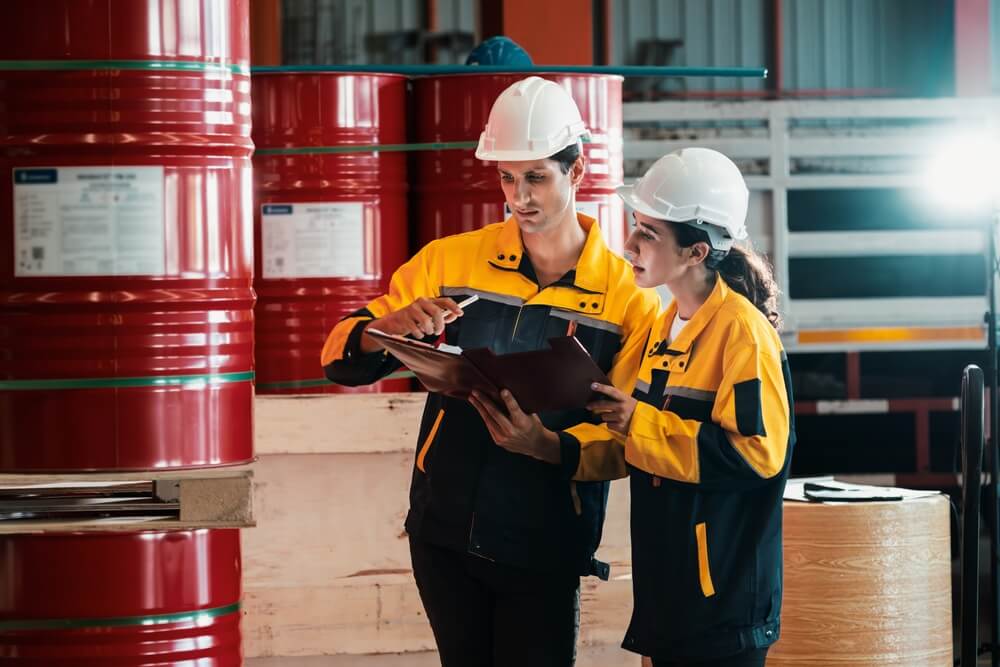Chemical engineers help create long-lasting solutions that benefit humans and the environment. These professionals take the resources around them and transform them into products that help people in their everyday lives.
This type of engineer is the reason we can treat harmful water supplies, use convenient cleaning products, and put gas in our cars. Without them, many of life’s daily activities and necessities would be difficult.
Take a look at the major responsibilities of chemical engineers, their pay range, and the industries they commonly work in.
What Is a Chemical Engineer?
By combining the complex sciences of chemistry, physics, and biology, chemical engineers can transform raw materials into valuable products. This expansive field involves the production of chemicals, fuels, pharmaceuticals, food, and many other products essential to everyday life.
Chemical engineers seamlessly merge their scientific knowledge with creative problem-solving to create solutions that improve efficiency, sustainability, and safety, making it one of the most in-demand engineering jobs in the United States.
What Do Chemical Engineers Do?
Chemical engineers design and enhance the manufacturing process of a wide range of products. They play a crucial role in developing and refining methods for producing chemicals, fuels, drugs, food, and other commodities.
These types of engineers typically work in manufacturing plants, research laboratories, or pilot plant facilities. Their daily duties usually include:
- Designing and developing chemical processes for manufacturing
- Optimizing production methods for efficiency and safety
- Overseeing daily operations in chemical plants
- Conducting research to innovate and improve products and processes
- Ensuring compliance with safety and environmental regulations
- Developing new materials and products
- Troubleshooting and solving process-related issues
- Collaborating with other engineers and professionals
- Implementing sustainable practices to reduce environmental impact

Common Types of Chemical Engineers
Whether you’re an entry-level engineer or a seasoned professional, there are many industries you can explore and responsibilities you can take on. Here are some common industries in the chemical engineering field:
- Mass and Energy Balance: These chemical engineers perform analyses and calculations to ensure that mass and energy are conserved throughout chemical processes, optimizing efficiency and performance.
- Fluid Mechanics: These engineers study and optimize the behavior and movement of fluids within chemical processes, ensuring efficient transport and flow.
- Heat Transfer: These engineers design and manage systems to effectively exchange heat, maintaining optimal temperatures for chemical reactions and processes.
- Mass Transfer: These chemical engineers focus on the transfer of substances between different phases (for example, gas to liquid), which is essential for separation and purification processes.
- Kinetics and Catalysts: These professionals investigate the rates of chemical reactions and develop catalysts to accelerate reactions, enhancing overall efficiency.
- Reaction Vessels: These engineers design and optimize reactors where chemical reactions occur, ensuring maximum yield and safety during production.
- Process Control, Economics, and Process Safety: These professionals implement control systems to regulate processes, assess the economic feasibility of operations, and ensure safety protocols are followed to prevent accidents and minimize risks.
Now, here is a list of various positions you can obtain over the course of your chemical engineering career:
- Research and Development Engineering: Research and developmental engineers focus on creating and improving products and processes through experimental research. They often work in laboratories to test new theories and develop innovative solutions.
- Laboratory Manager: These professionals oversee daily operations within a laboratory. They ensure experiments are conducted safely and efficiently, manage laboratory staff, and maintain equipment and supplies.
- General Chemical Engineering: Chemical engineers design and optimize processes for the production of chemicals, fuels, and other products, applying principles of chemistry, physics, and engineering to develop efficient and sustainable manufacturing methods.
- Process Engineering: Process engineers specialize in designing, implementing, and refining industrial processes. They focus on improving efficiency, reducing costs, and ensuring the quality and safety of the production process.
- Environmental Engineer: Environmental engineers work on projects that minimize negative environmental impact. Their job is to ensure compliance with environmental regulations, develop sustainable practices, and manage waste treatment and pollution control.
- Process Safety Manager: Process safety managers ensure the safety of industrial processes, identify and mitigate risks associated with chemical production, implement safety protocols, and ensure compliance with safety regulations.
What Skills Do Chemical Engineers Need?
Since chemical engineers are focused on developing products that are safe for public use, there are certain skills they need to succeed in this career. Here are some of the most important chemical engineering skills you will need:
- Problem-Solving
- Data Analytics
- Advanced and Diverse Science Knowledge
- Attention to Detail
- Resource Management
- Creative Thinking
- Advanced Math
How to Get a Job in Chemical Engineering
As of 2023, the median salary for chemical engineers is $112,100 per year. To get a job as a chemical engineer, you will need a bachelor’s degree in chemical engineering or a related field. Most employers prefer candidates with a degree from an ABET-accredited engineering program.
Additionally, if you’re a recent college graduate looking for an engineering job, it’s beneficial to have an internship during your time in college or right after you graduate. Gaining hands-on experience will set you apart from other applicants and help you quickly develop skills that you can apply to future positions.
If you’re looking for a chemical engineering job, contact the talented recruiters at Austin Nichols Technical Search. We’ll discuss your experience and goals to find the best position for you.
Contact us today to speak to one of our dedicated recruiters.
In case you missed it:










